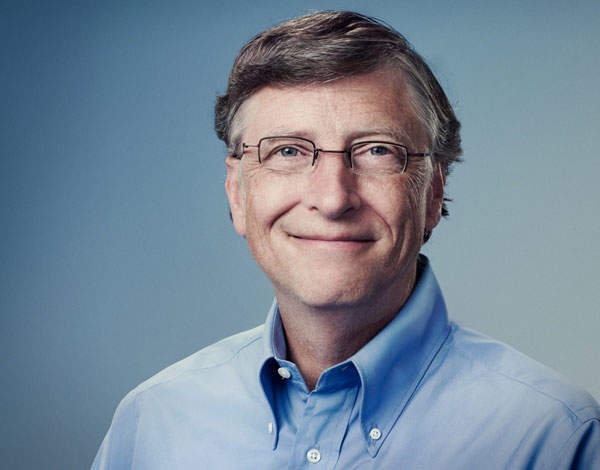

Bill Gates was voted the most admired person in a poll for The Times last week. The way he forged his own path — from college drop-out to the richest man in the world — earns him respect and admiration in every country. However, it’s his work as a philanthropist that makes him stand head and shoulders above other business leaders.
Gates’ philanthropy is well known around the world. One reason for this is his openness in talking about it — what he is doing, what he has gained from it and what he has learnt. He celebrates and talks about giving to encourage others to give more.
To this end, he and Warren Buffett hatched the idea of the Giving Pledge in 2010 to convince billionaires to dedicate half their wealth to philanthropy. It aims not only to inspire but also to help people collaborate and share ideas about how to solve some of the world’s most intractable problems. For the UK, where we are much quieter about our giving, this initiative is especially welcome.
Read more on Bill Gates’ donations
In his business life, Gates dreamed of a computer on every desk and in every home, which helped turned Microsoft into the phenomenal success it is today. In his philanthropy, he also imagines a completely different way of operating and living — the big vision, not just incremental changes.
His goals include eradicating polio and malaria, enabling universal access to sanitation services, and improving public schools in the US — huge ambitions that require giving large amounts of money, but also being clear about how he plans to tackle each challenge. Gates offers us this, providing details about the challenge, the opportunity, and the strategy he hopes to take forward. Anyone looking into the work of his foundation has to admire how seriously he takes this work.
Read more on philanthropy from Spear’s
For those of us watching closely, Gates’ annual letter provides us with a sense of the foundation’s priorities, where progress is being made and where it is not. In last year’s letter, he talked about India’s first year without a case of polio but explained it’s much tougher to make headway in Nigeria. It’s hard to read the letters without being excited about how much better the world will be if these diseases are eliminated.
For people thinking about giving money, Gates’ big-thinking attitude is an inspiration. Some people question the power he gains from his philanthropy. He is making significant changes to the US school system, and is unaccountable to parents and voters who may not approve of what he is trying to do.
All philanthropy involves some influence that lies outside democratic systems, but the scale and drive of Gates’ work makes him the focus point of certain criticisms. To try to stave off some of these comments, Gates is open about what he is trying to do and the evidence for why it should work.
The scale of Gates’ philanthropy, his strategy and the lessons he shares are all reasons why he is deeply admired across the world. Hopefully, the work he is doing to inspire others to give will mean that in future years there are greater numbers of philanthropists ready to compete with him for the title of most admired person.
Angela Kail is head of funder effectiveness at NPC






